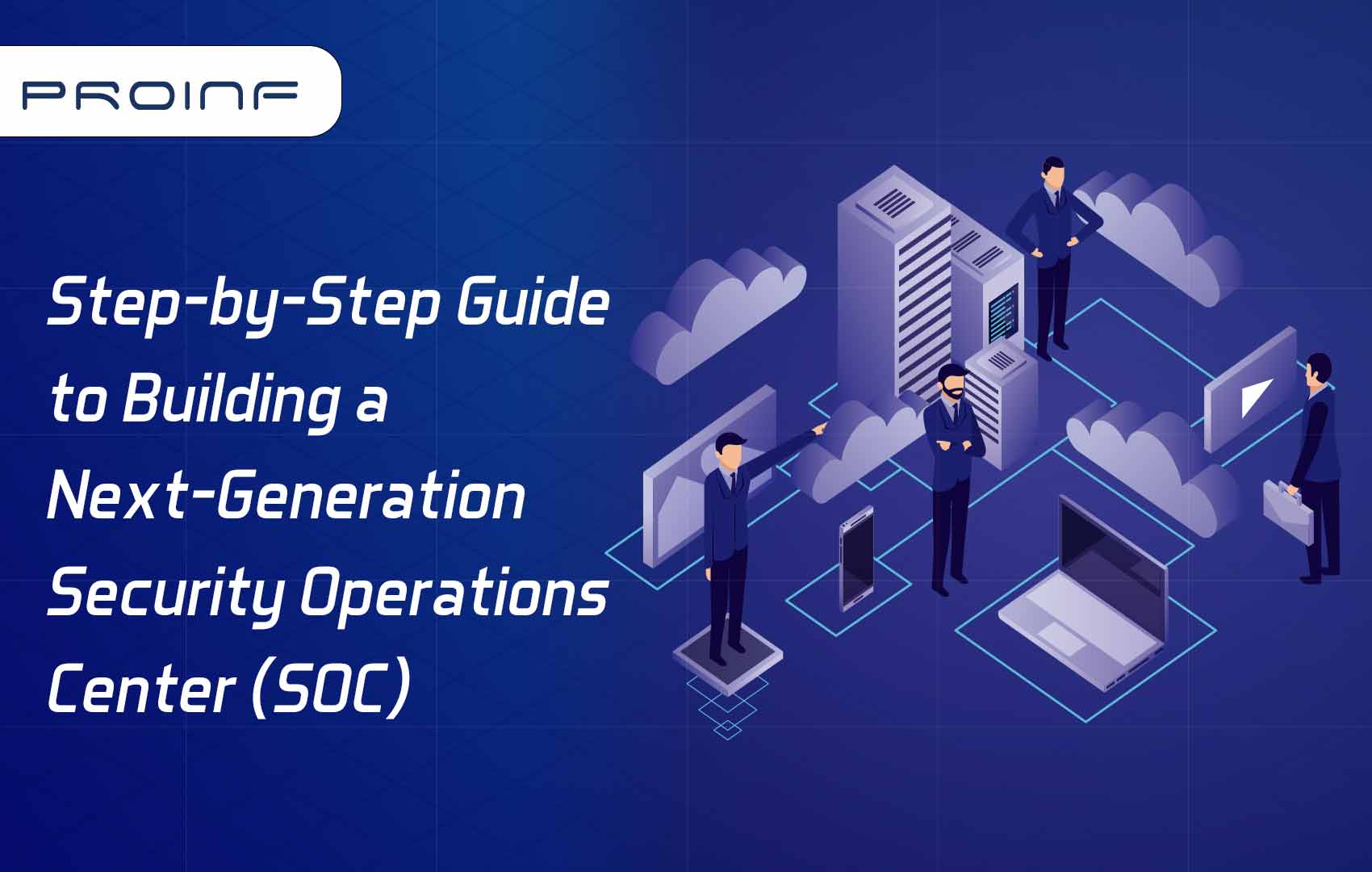Server Management Service Providers and their Impact on your Business
Chief Information Officer (CIO)s should not take the choice to select a server and application management services (AMS) vendor casually. After all, this company is responsible for years to come for maintaining, improving, updating, and repairing your mission-critical systems. A five to ten-year contract with an AMS provider is normal. If you pick the incorrect service provider and the engagement doesn't result in the anticipated outcomes, breaking the contract early may result in expensive fees, data loss, and even significant damage to the company.
Despite the implications, many CIOs fail to take into account the full gamut of elements that might make or break an AMS engagement. For instance, some CIOs prioritize, if not completely, the pricing strategies of providers to select the least expensive one. Other CIOs may focus on the techniques used by AMS providers to acquire expertise and transfer it, to global delivery models, or their capacity for continual development. No doubt the following criteria are significant, but more factors are vital to the success of AMS partnerships that many CIOs ignore.
1. Agility and flexibility
Businesses want elegant service providers who can continuously adapt to Update market situations. The portfolio of IT applications varies as a result of Mergers & Acquisitions (M&A) activity, the creation of new business sectors, and the adoption of disruptive technology. To prepare for these and other inescapable developments, find an AMS supplier that can alter its delivery methodology.
Communicating with referenced clients about how the provider has changed their relationship and services over time can help you decide whether a provider can deliver the necessary degree of adaptability. Find out how quickly the service provider executed the necessary personnel and resource adjustments and how the client's business was impacted by the change in services.
2. Consideration for the user experience
Your IT agenda may be hacked and the reputation of the whole IT organization may suffer if end users are dissatisfied with the service, they receive from the AMS supplier you select. The business side will use every chance to criticize an unreliable AMS provider. Still worse, senior management may refuse to provide financing for new initiatives, and a CIO may rapidly lose favor.
3. A strategic partner
An AMS provider that serves as a strategic partner should continuously assess—and make an effort to anticipate—your organization's needs, keep in line with your business's goals, objectives, and KPIs, and offer advice on upcoming problems or possibilities for innovation.
Look for a company that is dedicated to creating connections inside your organization on many levels. A project manager from the services company should collaborate with your project manager, and a director or partner should communicate with the CIO or vice president of applications. The services company's line of business owner should speak with another top-level representative.
With the use of a governance framework like this, it is possible to verify that the AMS provider is carrying out its responsibilities for technical operations, business-level assistance, and continual service delivery model improvement. To successfully drive the required behavior from the company and connect business objectives and KPIs with operational-level & service-level agreements, a strategic partnership must be based on cooperation, trust, and openness across different governance model layers.
Use this tested 7-point checklist to determine which server and application management service provider is ideal for your organization
1. How long has this firm been operating in your technology sector?
You need to seek businesses that have a track record of success in your particular sector and technology.
It may be found in blog postings about your sector or technology, endorsements from businesses similar to yours, or even in communication with salespeople, explaining things.
An experienced business, for instance, will discuss the key problems and their remedies without your assistance. They will provide detailed instructions and the necessary work to manage your servers in plain English free of technical jargon.
2. What degree of experience does the sysadmin have?
Many server and application management service providers highlight their proficiency with a certain piece of administration software, such as DirectAdmin or cPanel, for example.
The issue with it is, that they would be constrained by what the program could and could not accomplish. They would escalate any undocumented errors to the vendors and wait for a resolution.
This might cause your customers' service to decline over several hours or sometimes even days.
3. How long has the business been active in your sector?
Consider how long the business has operated in your domain. A corporation has more to lose from receiving negative customer feedback the longer it has been in the business because of the more investment it has made therein.
4. Do they offer testimonials?
Nothing indicates appreciation like a testimonial from a previous client, since only a happy client would take the time to respond to a reference request from another company.
5. Where is the company based?
Because they are unclear on how to hold the provider accountable if they fail to fulfill their obligations under the contract, many businesses are reluctant to hire a server support firm.
Due to this, it's crucial to establish a contract that is legally binding with a supplier who is a registered firm.
6. What does the service cover?
Many businesses showcase their offerings in fancy language while omitting to disclose their shortcomings.
For instance, a lot of 24/7 monitoring providers don't fix a broken service. When a service is unavailable, they only send you an alert. What good is an alert if you can't respond to it because you're not at your computer for some reason? Everything required to maintain your server and application online, quickly, and safely should be handled by your server and application management firm.
This should include: –
- 24-hour Monitoring
- Alert Verification by Humans
- Speedy Recovery from Failing Services
- Server Optimization
- Server Hardening
- Regular Backups
- Disaster Recovery, and more.
7. What is the on-demand support response time guarantee?
Alerts and server problems should be resolved by your support partner in less than 10 minutes following an SLA. But what about their promises to respond quickly to concerns you report? How quickly will they respond, for instance, if you need assistance with a website hacking problem? It won't do you good if your business takes hours rather than minutes to respond.
An Example:
A recent event on AWS Failure in Northern Virginia Region was reported by Amazon. If we go deeper into the details: the service interruption that took place on December 7, 2021, in the Northern Virginia (US-EAST-1) Region ( Ref: https://aws.amazon.com/message/12721/ )
While the internal networking problems did not directly affect AWS customer workloads, they did have an impact on several AWS Services, which in turn had an impact on customers utilizing those services. Some customer applications that did not rely on these capabilities only saw a small impact from this event because the main AWS network was unaffected.
The control planes that are used to create and manage AWS resources were impacted by some AWS services. These control planes take advantage of internal network services.
For instance, the EC2 APIs that customers use to start new instances or describe existing active instances had elevated error rates and latencies starting at 7:33 AM PST, whereas operating EC2 instances were unaffected by this incident. Except for fresh EC2 instance launches, which recovered by 2:40 PM PST, EC2 API error rates and latencies started to decrease by 1:15 PM PST as congestion started to decrease. Customers of AWS services like Amazon RDS, EMR, and Workspaces would not have been able to start new EC2 instances during the event, preventing them from creating new resources.
Server Failure and their Impacts on Businesses
The cost of a server failure in terms of money relies on several variables, as well as the type and role of the server that failed—was it an analytics server, a web server, or an email server? And how much criticality it is? It also matters how long the server was offline. It might not be worthwhile to calculate the loss if it was only a short period, but if it was longer, it might be prudent to do so. If employees were using the server, you must determine how much they were paid for ostensibly doing nothing, which relies on their salaries.
It seems logical to determine how many orders were unable to be placed when the offending e-commerce server was down if that is the case. To accomplish this, compare the time period—for example, Wednesday between 5-7 p.m.—to the number of orders you typically receive during this period.
How much your business relies on email traffic will determine how much it would cost if a mail server went down. Customers who are accustomed to receiving prompt responses to their inquiries could become irate. Some clients might no longer use your service or purchase your service as a result of this.
The significance of a server hosting service
Companies with a large workforce are more likely to use a server supplier who specializes in hosting. To do this, the business owner will hire a server from a hosting firm that specializes in doing this and will have the only right to use the server's resources. The benefit of a server hosting service is that it will give the customer based on the requirements and the business needs in terms of CPU, Memory, and Storage. Customization of the server, and configuration of the server needed for official purposes.
The upfront price for the customer to buy its server is eliminated because the dedicated/Standalone server provider installs and maintains the services. Additionally, the dedicated server will run a few programs that are helpful for your website as well as current versions of programs like .Net, PHP, Node, JavaScript, and many other languages that are necessary for efficient application operation but are difficult in a professional setting. As a result, having a server that is solely used for this purpose is essential and the greatest option for giving clients access to raw processing power, dependability, customization, and security.
Advantages of a dedicated/Standalone server provider include
There is no sharing of resources
When a dedicated server hosting company is chosen, the server's resources are not shared. The client doesn't have to worry about other websites filling the server's CPU and Memory. The dedicated server also ensures that erroneous scripts running on any other website or surges in bandwidth demand won't cause the server to slow down.
Improved server performance and security
You will have extra time for your website after you employ a dedicated server hosting service. When there is a lot of traffic, it is important to have a server hosting provider devoted to your server; as a result, these single servers are more dependable and stable than shared hosting facilities.
Another benefit of a dedicated server is that no space is shared with any potentially harmful websites or spammers. Therefore, the server offers greater security, especially for businesses that handle sensitive transactions using Secure Sockets Layer or File Transfer Protocol.
The dedicated server will provide robust protection for all the files when updated with security updates.
Flexibility
In contrast to shared hosting, where the server is pre-loaded with software, operating system, and applications, the server provider lets the customer configure the server to meet their specific demands for CPU, software, Storage, and Memory.
The significance of server hosting providers focused on a single server also enables the business to personalize the server environment following workplace requirements and configure the server with the necessary applications and software.
Distinct IP addresses
In contrast to shared hosting, which shares an IP address with several other websites, dedicated server hosting assigns a separate Static IP address to each server or computer connected to the main server.
To prevent access to any spam or uncertified sites from other websites, it is crucial to use the hosting provider specifically designated for your workplace. For a major company with an e-commerce website that needs SSL to handle credit card payments, the necessity of a server hosting provider cannot be overstated.
Reliability
To ensure that their website will be hosted on the finest server, company owners must have total faith and trust in the dedicated server hosting provider. Since the bandwidth is not shared, the server provider's dependability is increased. With the choice of managed dedicated servers, the host may also relieve you of part of the server management responsibilities.
Scalability
Without switching to a different server or hosting company, the customer may get more resources/space through the dedicated server hosting provider based on the requirement. Every company, no matter how big or little, needs room to expand, and a dedicated server gives the customer this chance with the least amount of hassle and expense.
Given the advantages listed above, any business must have a dedicated server hosting service. Because of all the capabilities offered by the single, dedicated server, the dedicated server provider can keep a high level of performance. Therefore, to maintain a faster loading time than a shared hosting server, websites with significant traffic volumes or that demand a lot of bandwidth for downloading or uploading video content and high-resolution graphics are required.


